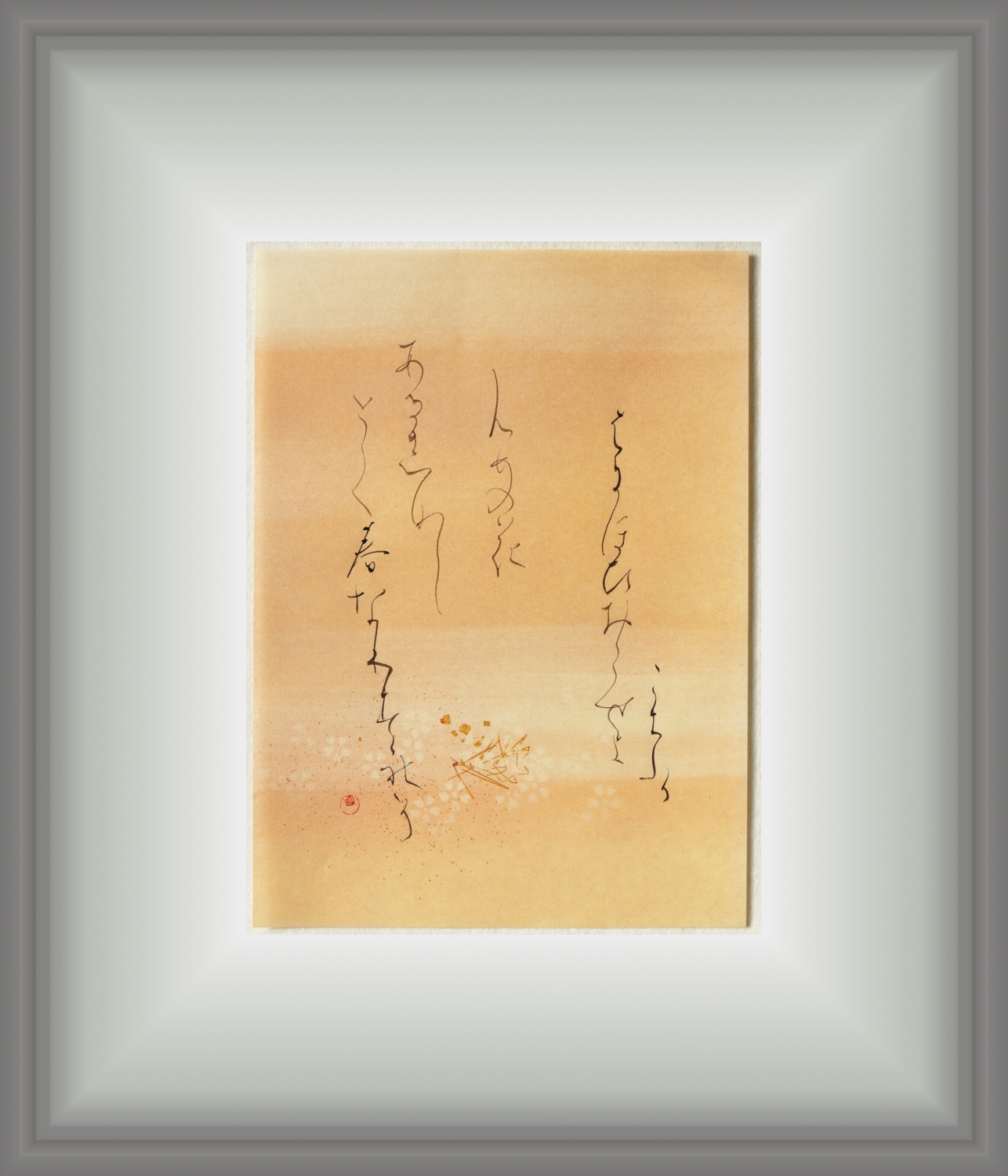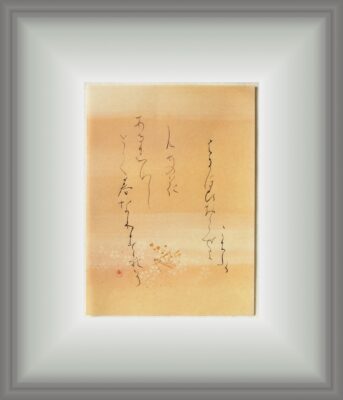#172 The plum blossom, when spring comes and the east wind blows,…
| Size: | about 33×24 cm |
|---|---|
| Dressing: | framed |
What kind of verse?
| verse: | Kochi fuka ba, nihohi okose yo, ume no hana, aruji nashi tote, haru na wasure so |
|---|---|
| (imho): | The plum blossom, when spring comes and the east wind blows, bring your scent to Dazaifu where I am. Do not forget spring just because your master is not here. |
| poet: | Sugawara, Michizane |
| in: | 901 |
brief comment
If you can watch Japanese TV program “Hikaru kimi e”, you can image ancient Japan 1000 years ago.
In the era, gorgeous costumes, beautiful buildings with gorgeous gardens, and “kana” literature (women’s literature) were yielded by the nobility, it is called as “Kokufu culture” which is a culture with unique characteristics of Japan.
The person who create the opportunity was Michizane Sugawara, famous for this waka poems.
Michizane appealed for the cancellation of the Tang Dynasty envoys, saying that there was nothing to be learned by sending envoys to the declining Tang Dynasty. This weakened the influence of Tang culture and instead led to the development of Japan’s own culture.
He was not only an accomplished politician, but also brought about the rise of culture. However, because he was too brilliant, his political rivals kicked him out of office and he was forced to move to Dazaifu.
When he left the capital, he composed this waka poem to his cherished plum tree at home.


